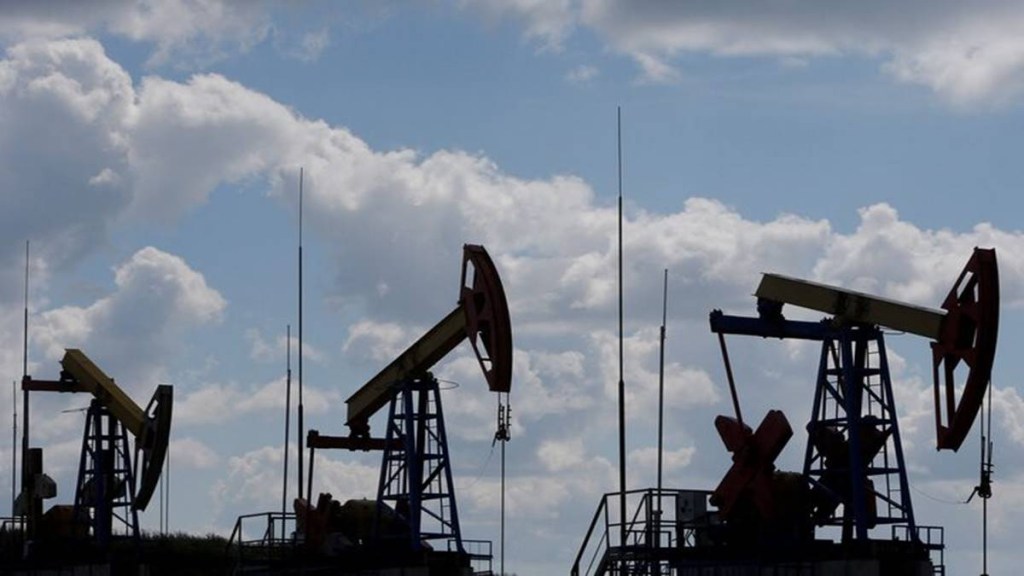US Ambassador to India, Eric Garcetti, recently revealed a significant shift in US policy regarding Indian purchases of Russian oil. Speaking at a Council on Foreign Relations event, Ambassador Garcetti disclosed that the United States actively encouraged India to procure Russian oil to stabilize global commodity prices. He stated, “‘They brought Russian Oil because we wanted somebody to buy Russian oil at a price cap, that was not a violation. It was the design of the policy because as a design of the commodity we didn’t want the price of the commodity to go up, they fulfilled that.”
At an event in Amritsar, while explaining how India does not succumb to pressure from other countries, external affairs minister Dr S Jaishankar said: “We were under pressure not to buy oil from Russia. Imagine if we bow down and don’t buy oil from Russia, tell me how much the petrol price increases for you, at least by 20 rupees per liter, you pay more. #OilPrices”.
A Change in US Directives
However, this decision marks a departure from previous US directives, particularly in the aftermath of the 2022 Russia-Ukraine conflict, when the US had urged countries, including India, to decrease their reliance on Russian energy sources. The then US deputy NSA, Daleep Singh, had even issued warnings during his visit to Delhi in early 2022, cautioning against the consequences of increasing Russian energy imports.
This stance was further reinforced in April of the same year when the White House explicitly advised India against expanding its purchases of Russian oil. External Affairs Minister S. Jaishankar has acknowledged the pressure exerted on India, highlighting the potential economic repercussions of complying with these directives. He emphasized that yielding to such pressure would have led to a significant increase in petrol prices, adversely affecting consumers.
Oil Diplomacy
As a nation with a rapidly growing economy that has not been blessed with crude oil deposits, India is forced to make sure that it has a steady, reliable, and affordable supply of crude oil and its upstream products to make sure that the everyday functioning of the nation is not hampered, and the prices do not fluctuate too much. “To this end, several nations, like Nigeria, Venezuela, Russia, Gabon, and even Barbados have been a part of the countries that India has bought oil from previously and continues to buy from presently as well,” says Dr Aparaajita Pandey, Ph.D. from Centre for Latin American Studies, Jawaharlal Nehru University.
In conversation with Financial Express Online, Dr Pandey, says: “This is an economic decision in the sense that the purchase is made keeping in mind the best price possible and a strategic decision in the context of the government being conscious of the inflation and maintaining the lowest price possible for its citizens.”
Do you think India purchased crude from Russia because of the US?
No. “With this backdrop it must be noted that India continued to buy crude oil from Russia even after the beginning of the Russia – Ukraine conflict much to the chagrin of the US and the west. India was vehemently condemned for doing so by the US and the UK; in addition to being asked to at least minimise its economic relations with Russia if not end them completely,” Pandey explains.
Adding, “India was very clear then that our national interests reign supreme, and as an independent and sovereign country we were free to source our crude oil from any nation we pleased. This sentiment has not changed and the Indian decision to buy crude oil from Russia is still very much an Indian decision.”
In her view, while India and the US enjoy a terrific strategic partnership that would become more entrenched with time and due to the swiftly changing dynamics of the South China Sea; there is no doubt that the relationship between India and Russia is one that has not changed in nature since decades. “India and Russia have always enjoyed friendly relations and that does in part contribute to them being Indian oil suppliers,” she adds.

